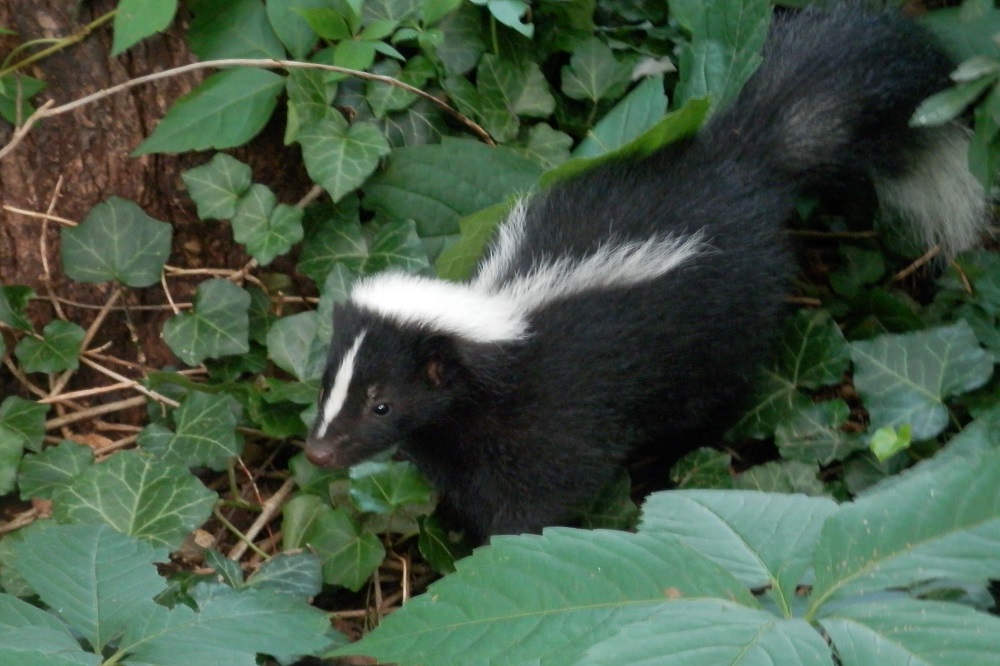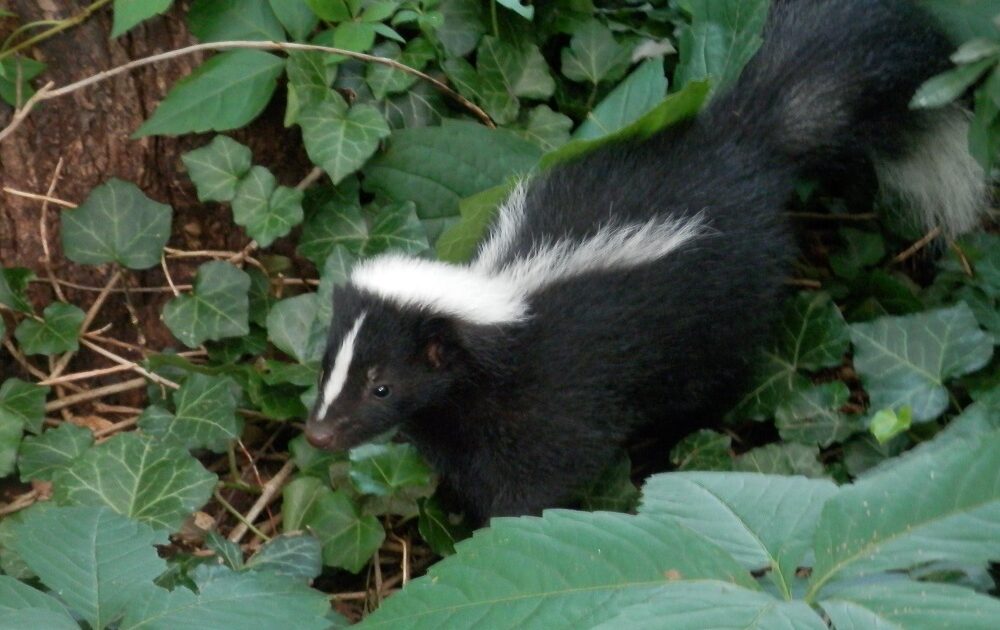Human beings know it, other animals in the wildlife kingdom definitely know it (that’s why we all keep our distance), but do skunks know it? Do they know that they stink? This is a question that, no doubt, pops up in the minds of Scarborough residents whenever skunk season rolls around. Of course at this time many also find themselves needing effective wildlife control services to protect their properties.
But the skunk stink is so pungent that one can’t help wondering if skunks themselves smell it. Scientists have wondered the same thing too and in a bid to answer the question, they conducted research which showed that skunks do find the pungent spray offensive. Skunks try hard to avoid getting sprayed by skunks. Additionally, they also generally avoid spraying each other. In fact, skunks warn other skunks when they are about to spray. Female skunks may emit sprays during mating season to ward off undesirable suitors. The fact that this works as a deterrent to male skunks shows that the skunks’ sense of smell is sharp enough to pick up the stench of the spray. When skunks end up spraying each other, the victim works feverishly to get rid of the odour. This includes rubbing in the dirt, grooming themselves and sneezing. This is another indicator that they know the smell is a bad one. So, if you ever find yourself wondering ‘Do skunks get a whiff of the stink they release?’ The answer is yes.
Skunk Activity
Skunks typically shy away from the spotlight but they are very active during their mating season which happens from February to March each year. This means you will both see and smell them during this time. Baby skunks are born after 60 days of gestation, and nursing mother skunks will be seeking safe resting places during May to June as they prepare to birth and nurture their litters of up to seven babies.
Stink aside, female skunks are excellent mothers. They spend much of the first six weeks of their babies’ lives preparing them for survival. For the first six weeks of a baby skunk’s life, the infant is totally reliant on its mother. Skunk kits are very vulnerable after birth as they are born deaf, blind and almost hairless. Baby skunks become potent stench throwers form early in their lives. In fact, within their first three months of life, they learn how to spray. After about six weeks of indoor nurturing, mother skunks take their kits out to experience and get accustomed to life in the outdoor space. In this environment the mother skunk will show her kits how to do things like finding food and using those powerful front claws. These skills are crucial to a skunk’s survival. Over time, these new skunks are weaned by their mother and launch out into the world on their own.
Getting Ready for Skunk Season
Skunks are reclusive animals. They nest in secretive places such as holes they dig in the ground (thanks to their powerful front claws), under wood piles or in hollow logs. They also occupy dens that have been abandoned by other animals. They are attracted by the opportunity to readily access food and water, which is why they sometimes occupy spaces in and around human dwellings. Since skunks are omnivorous, a wide variety of items around your property can be food for them. These include insects, fruits, eggs and even the garbage that people throw out. To discourage skunks from coming around your property, you should remove the things they like to eat.
It is important to act before skunks find their way onto your property. If you wait, it may become dangerous to evict them from your Scarborough property. When a nursing skunk and her babies are under your shed during the winter, for example, eviction could threaten their survival. Effective wildlife control services to remove skunks and keep them away are provided by experts such as Skedaddle.




